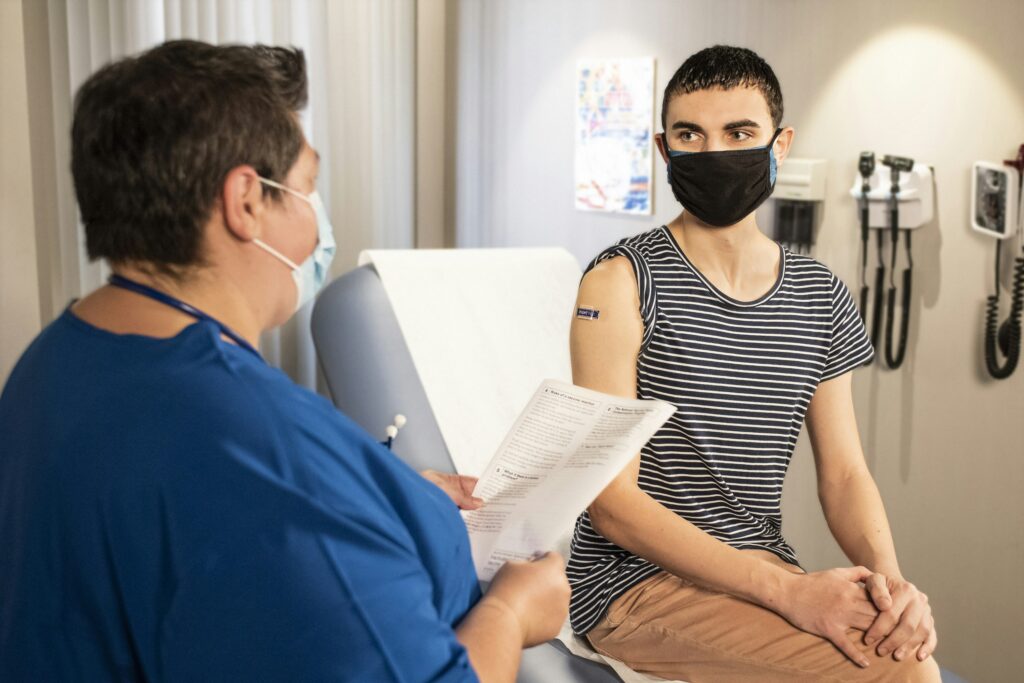Addiction and mental health disorders are often deeply intertwined. It’s not uncommon for individuals struggling with substance abuse to also experience depression, anxiety, trauma, or other psychological conditions. When both are present, it’s known as dual diagnosis or co-occurring disorders — and it requires specialized, integrated treatment.
At Om to Home, our inpatient program in Central Florida is uniquely equipped to treat dual diagnosis cases with a compassionate, evidence-based approach. We don’t just treat the symptoms — we help individuals heal at the root level, addressing both addiction and mental health together.
In this article, we’ll break down:
- What dual diagnosis is
- Why it’s so common
- How our inpatient programs are structured to address it
- What patients and families can expect from dual diagnosis care
- How treating both conditions leads to better long-term recovery outcomes
🔍 What Is Dual Diagnosis?
Dual diagnosis refers to the presence of both a substance use disorder and one or more mental health conditions in the same individual.
Common co-occurring conditions include:
- Depression
- Anxiety disorders
- Bipolar disorder
- Post-traumatic stress disorder (PTSD)
- Attention-deficit/hyperactivity disorder (ADHD)
- Schizophrenia
- Personality disorders
According to the Substance Abuse and Mental Health Services Administration (SAMHSA), over 9 million U.S. adults experience both mental illness and substance use disorder in a given year. That’s nearly 1 in 3 people receiving addiction treatment.
These conditions often interact in complex ways. Sometimes mental health symptoms lead a person to self-medicate with drugs or alcohol. Other times, chronic substance use may trigger or worsen psychiatric symptoms.
Either way, both disorders must be treated simultaneously to give the patient the best chance at lasting recovery.

🧠 Why Dual Diagnosis Is So Common
There are several reasons dual diagnosis is so prevalent:
1. Self-Medication
People dealing with anxiety, depression, trauma, or emotional pain may use substances to temporarily numb the symptoms. Unfortunately, this often creates a cycle where substance use worsens mental health, leading to more use.
2. Brain Chemistry
Many mental illnesses and addictions share similar disruptions in brain chemicals like dopamine and serotonin, increasing vulnerability to both.
3. Environmental & Genetic Factors
Childhood trauma, neglect, genetics, or chronic stress can contribute to the development of both disorders — often simultaneously.
4. Lack of Proper Diagnosis
In many outpatient or emergency settings, providers may treat one issue while missing the other entirely. That’s why comprehensive evaluation is a critical first step in our inpatient program.
🏥 How Om to Home Treats Dual Diagnosis in an Inpatient Setting
At Om to Home, we’ve built our inpatient program around the understanding that mental health and addiction must be treated together — not in isolation.
Here’s how we do it:
1. Integrated Care Planning
When a patient is admitted, our clinical team conducts a thorough biopsychosocial assessment that screens for:
- Substance use history
- Medical concerns
- Mental health diagnoses (past or undiagnosed)
- Trauma or life stressors
- Current medications and psychiatric history
From this, we develop a customized treatment plan that addresses both substance use and co-occurring mental health concerns — right from day one.
2. Medical Detox with Psychiatric Oversight
Many dual diagnosis patients begin their treatment in inpatient detox, where medical staff can manage withdrawal symptoms safely. But withdrawal often includes mental health flare-ups such as:
- Panic attacks
- Depression
- Suicidal ideation
- Hallucinations or delusions
Our 24/7 medical team and psychiatric professionals work closely together to stabilize both physical and psychological symptoms during this critical phase.
3. Therapeutic Interventions for Both Conditions
In our residential inpatient program, patients receive daily therapeutic services, including:
- Cognitive Behavioral Therapy (CBT)
Helps patients understand and reframe negative thought patterns that fuel both addiction and mental health symptoms. - Dialectical Behavior Therapy (DBT)
Especially useful for mood disorders and trauma, DBT teaches emotion regulation, distress tolerance, and interpersonal effectiveness. - Trauma-Informed Care
Many individuals with dual diagnosis have experienced trauma. Our clinicians are trained to create a safe, validating environment. - Group Therapy
Helps patients realize they’re not alone in their struggles and builds a sense of community. - Medication Management
For those with depression, anxiety, bipolar disorder, or schizophrenia, supervised psychiatric medications can support mental stability while reducing cravings or relapse risk.
4. Partial Hospitalization Program (PHP) Step-Down Care
After initial stabilization in detox or residential care, patients may move into our Partial Hospitalization Program (PHP) — a structured yet less intensive inpatient level of care. Here, they continue to receive:
- Psychiatric monitoring
- Individual and group therapy
- Addiction education
- Skills-building workshops
This step-down model helps reinforce the tools needed to manage both disorders before fully transitioning to post-inpatient life.
📈 Better Outcomes When Treated Together
Research shows that integrated dual diagnosis treatment leads to:
- Fewer relapses
- Better treatment retention
- Reduced hospitalizations
- Lower suicide risk
- Higher quality of life post-recovery
Patients who only treat one condition are far more likely to relapse — because the untreated issue remains a trigger.
That’s why our team believes in a whole-person approach: treating the mind, body, and substance use issues together in a safe, supportive environment.
👥 What Families Should Know About Dual Diagnosis Treatment
Loved ones often feel confused, helpless, or even guilty watching someone battle both addiction and mental illness. But you’re not alone — and there is help.
We encourage families to:
- Learn about dual diagnosis and its challenges
- Participate in family therapy or support calls (as clinically appropriate)
- Practice empathy and patience as their loved one stabilizes
- Celebrate small wins along the recovery journey
Remember: Healing is possible, and you don’t have to do it alone.

💬 Final Thoughts: Treating the Whole Person, Not Just the Addiction
Dual diagnosis is not a life sentence. It’s a treatable condition — but only when addressed comprehensively. At Om to Home, we don’t separate mental health from addiction. We view both as deeply connected pieces of the same puzzle, and our inpatient program is built to solve it holistically.
🟢 Ready to Begin? We’re Here to Help.
If you or a loved one is struggling with both addiction and mental health concerns, Om to Home offers the professional, integrated care you need to begin healing.
Fill out our confidential “Learn More” form below to speak with a care coordinator today — or call us directly.
📞 Contact Us
Om to Home – Inpatient Detox, Residential Treatment, and Partial Hospitalization Programs
📍 1120 S Park Avenue, Apopka, FL 32703
📞 (321) 251-2240
Confidential. Compassionate. Available 24/7.



